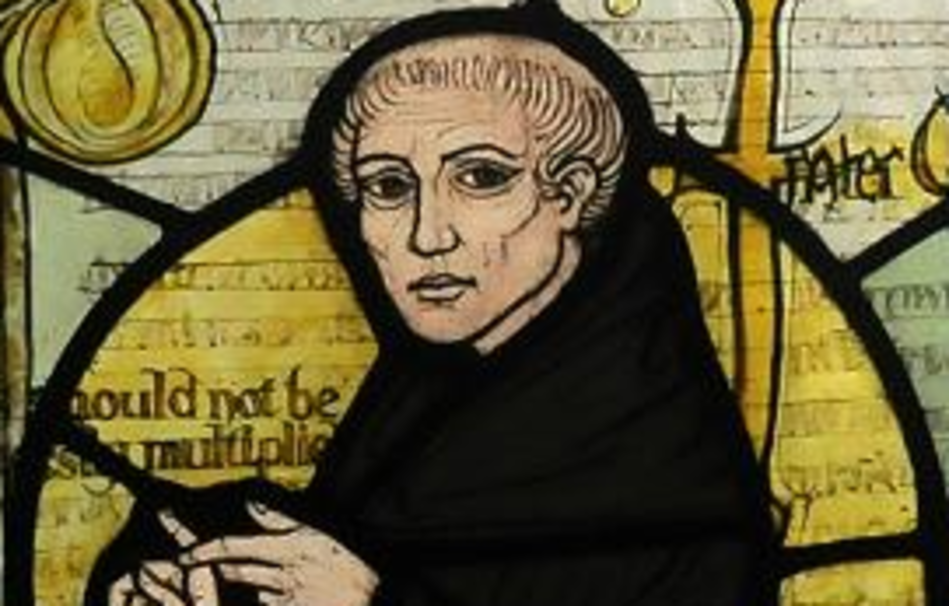The so-called “Question of Universals”, although it was already the subject of speculation and research in the ancient Greek world, would acquire a decisive role in the so-called medieval era. Of all Organon Aristotle, barely preserved, in Boethius’ Latin translation, categories And About interpretationand it would be necessary to wait until the twelfth century for the translation and European reception of the other logical works of Aristotle. Added to both as well, by introduction (isagoge), comment in categories (also introduced by Boethius) Fruit of the Neoplatonic Porphyry – the prototype, by the way, along with Celsus and Julian the Apostateof an anti-Christian writer—in which he raised the heart of the problem as if in passing (translated by Luis M. Valdés, ed. 2012): “As regards, first of all, races and species, excuse me by saying whether they do exist or are they mere concepts; and if they do exist , if they are material or immaterial; and finally, if they exist separately [= tesis platónica] or on things that are reasonable and depend upon [= tesis aristotélica]Because these questions are certainly very deep and require the study of a larger entity ».
From this primal question arose – as the last word – two opposing answers given by two of the great Stagirite commentators, from which many contradictory styles or lines of thought will arise from then on. On the other hand, St. Thomas Aquinas says in his commentary on the book About interpretationApprovals (Lesson 10): “Something is universal when the name is not only available to many, but also when The meaning in the name can be given in many». On the other hand, William of Ockham denies the existence of a universal nature in individuals. The implications of this second concept are crucial: our only knowledge is direct experience or intuition of individual entities; Concepts are nothing but pure names, voluntary constructions created by the human mind and that They serve you To indicate and group together a group of objects that appear to it to be the same. In the same way, appearances tell us that there are events which are produced by others on a regular basis, but we cannot infer a natural causal relationship between them, because we only catch individual connected and contiguous events, and nothing else; At best, as we did with concepts, we can invent and make judgments our service To explain these normal phenomena, but not rationally pronounce on their true cause or origin. And once the principle of causality is eliminated, we cannot even make judgments about the reality of metaphysical entities or not. Finally, since there is no nature, we cannot make objective judgments about moral good or evil either.
In short, this second position enshrines pure and simple skepticism, and it is the position that forms the basis of all modern and contemporary so-called “philosophy” or “science” that has been developing since the seventeenth century until today. Occam “compensated” for this lack of natural order by resorting to “divine omnipotence” and his fickle will: we can only know things (including God) by faith; Everything depends, finally, on the positive, arbitrary dispositions of God. When Descartes tried to overcome, starting from the nominal epistemological premises, this absolutely natural perceptual impotence, he also had to turn to God as a guarantee of certainty … of the existence of the external world! St. Thomas could contemplate the existence or non-existence of God, since this was not clear and had to be explained; But it was not for him – nor for any sane person – that the existence of the external world was the subject of proof. In contrast, in the so-called “problem of the continuity of essences” (i.e., how the human mind can think of things external to itself), Descartes’ successors had to resort to the “Joker” of God as the sole principle of our knowledge, either with the “occasional” Malebranche; Either with Leibniz’s “predetermined harmony”; Either – a final “eyeliner” – with a crude and direct identification of God and nature by B. Spinoza (and Hegel). Temporary “patches” that David Hume would take care to scrape by taking, with resounding logic, the said nominal assumptions toward the same recent skeptical consequences that Occam had already arrived at.
One would think that the new “philosophy” or “science”, which had “destroyed” metaphysics, would have at least given us a “real grasp” in the field of natural philosophy, according to Galileo’s and Newton’s new method of casting models. – Tracksuit. This was the optimistic thesis that A.A. Kant, an introduction to positivism in the nineteenth century. But at the end of that century and the beginning of the twentieth century, in the midst of the “crisis of classical physics” – that would lead to the formulation of irrational Theory of relativity (in the universe) f Quantum mechanics (in microcosm) – “traditional” and “instrumental” concepts of science are back again thanks to I. Mach, H. Poincaré, b. It reaches its climax with the Vienna Circle, which even today has not succeeded in freeing itself from that Peronism imposed on it by its nominalism. There is only one way out Impasse: Return to a healthy Stowe position. Thomas.
Felix M. Martin Antoniono





:quality(75)/cloudfront-us-east-1.images.arcpublishing.com/elcomercio/DXYVIQR6EBGULOFBFA2HOAQVIM.jpg)